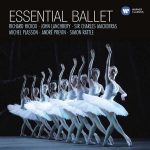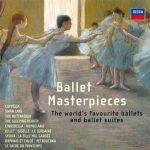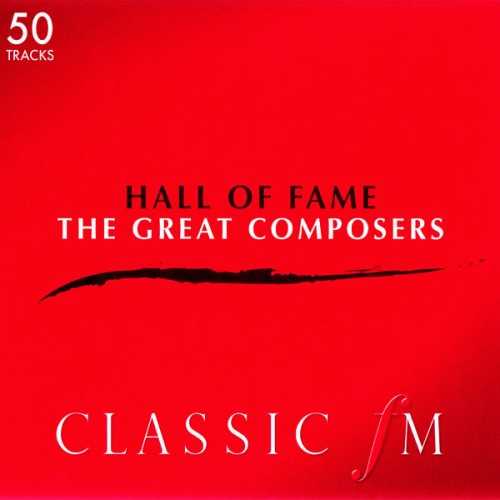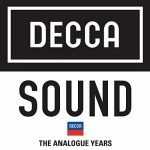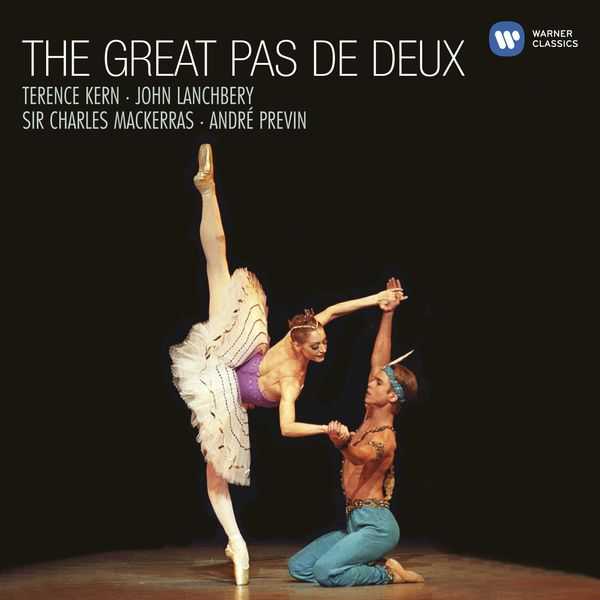
Composer: Adolphe Charles Adam, Frédéric François Chopin, Riccardo Drigo, Louis Joseph Ferdinand Hérold, Leon Minkus, Sergei Prokofiev, Johann Strauss, Pyotr Il’yich Tchaikovsky, Giuseppe Verdi
Performer: Christopher Warren-Green, Robert Truman, Douglas Cummings, John Brown, Barry Smith
Orchestra: London Festival Ballet Orchestra, Royal Philharmonic Orchestra, Sydney Symphony Orchestra, Elizabethan Trust Melbourne Orchestra, Royal Liverpool Philharmonic Orchestra, Philharmonia Orchestra, Copenhagen Philharmonic Orchestra, London Symphony Orchestra, London Philharmonic Orchestra
Conductor: Terence Kern, Robert Irving, John Lanchbery, Barry Wordsworth, Ole Schmidt, André Previn, Sir Charles Mackerras
Number of Discs: 2
Format: FLAC (tracks)
Label: Warner
Catalogue: 6486352
Release: 2010
Size: 713 MB
Recovery: +3%
Scan: cover
CD 01
Drigo: Le Corsaire
01. No. 1, Introduction (Moderato assai – Andante) [for Adolphe Adam’s ballet]
02. Pas-de-deux – No. 2, Variation I (Allegro)
03. Pas-de-deux – No. 3, Variation 2 (Allegro)
04. Pas-de-deux – No. 4, Coda (Allegro moderato)
Minkus: Don Quixote
05. Act 3: I. Entrée
06. Act 3: II. Adage
07. Act 3: III. Basilio’s solo
08. Act 3: IV. Kitri’s solo
09. Act 3: V. Coda
Minkus: La Bayadère (Suite after the Ballet arranged by John Lanchbery)
10. No. 5, Pas de deux
11. No. 7, Solor’s Solo
12. No. 10, Pas de deux – Nikiya’s Solo
13. No. 13, Finale
Minkus: Don Quixote (Suite after the Ballet arranged by John Lanchbery)
14. No. 7, Their Friends (Pas de deux)
Adam: Giselle
15. Act I, No.5, Peasant pas de deux (Burgmuller): Entrance
16. Act I, No.5, Peasant pas de deux (Burgmuller): Adagio
17. Act 1: No. 5 Variation I
18. Act 1: No. 5 Variation II
19. Act I, No.5, Peasant pas de deux (Burgmuller): Variation III
20. Act 2: No. 15 Pas de deux (Giselle & Albrecht)
21. Act II, No.15: Albrecht’s Variation
22. Act II, No.15: Giselle’s Variation
23. Act II, No.15: Coda
Hérold: La fille mal gardée
24. Act 1: No. 16a, Pas de deux de Fanny Elssler. Introduction
25. Act 1: No. 16b, Pas de deux de Fanny Elssler. Girl’s Solo
26. Act 1: No. 16c, Pas de deux de Fanny Elssler. Adage
27. Act 1: No. 16d, Pas de deux de Fanny Elssler. Man’s Solo
28. Act 1: No. 16e, Pas de deux de Fanny Elssler. Coda
29. Act 2: No. 29, Pas de deux
30. Act 2: No. 30, Finale
Chopin: Les Sylphides
31. Waltz in C-Sharp Minor, Op. 64 No. 2 (Orch. Douglas)
Paulli: The Kermesse in Bruges or The Three Gifts
32. Pas de deux, (a) Duet between Carelis and Eleonore
33. Pas de deux, (b) Variation I
34. Pas de deux, (c) Variation II
35. Pas de deux, (d) Variation III
36. Pas de deux, (e) Coda
Helsted: Pas de deux from “Flower Festival in Genzano” (adapted from Matthias Strebinger’s “Pas de deux” for “Napoli” Ballet of Bournonville)
37. No. 1, Entr‚e (Introduction – Polka)
38. No. 2, Adage
39. No. 3, Variation I (based on a Waltz from Adolphe Adam’s “Le Diable … quatre”)
40. No. 4, Variation II
41. No. 5, Variation III
42. No. 6, Coda
CD 02
Tchaikovsky: Swan Lake, Op. 20
01. Act II: No. 13e, Dance of the Swans. Pas d’action
02. Act I: No. 5a, Pas de deux for Two Merry-Makers. Tempo di valse ma non troppo vivo, quasi moderato
03. Act I: No. 5b, Pas de deux for Two Merry-Makers. Andante – Allegro
04. Act I: No. 5c, Pas de deux for Two Merry-Makers. Tempo di valse
05. Act I: No. 5d, Pas de deux for Two Merry-Makers. Coda
Tchaikovsky: The Sleeping Beauty, Op. 66
06. Act II “The Vision”, Scene 1: No. 15a, Pas d’action. Scene of Aurora and Désiré
07. Act II “The Vision”, Scene 1: No. 15b, Pas d’action. Aurora’s Variation
08. Act II “The Vision”, Scene 1: No. 15c, Pas d’action. Coda
09. Act III “The Wedding”: No. 28b, Pas de deux. Entrance
10. Act III “The Wedding”: No. 28c, Pas de deux. Adagio
11. Act III “The Wedding”: No. 28d, Pas de deux. Variation I “Prince Désiré”
12. Act III “The Wedding”: No. 28e, Pas de deux. Variation II “Aurora”
13. Act III “The Wedding”: No. 28f, Pas de deux. Coda
Tchaikovsky: The Nutcracker, Op. 71
14. Act II: No. 14a, Pas de deux. Andante maestoso
15. Act II: No. 14b, Pas de deux. Variation I “Tarantella”
16. Act II: No. 14c, Pas de deux. Variation II “Dance of the Sugar-Plum Fairy” & No. 14d, Pas de deux. Coda
17. Act II: No. 15, Final Waltz and Apotheosis
Tchaikovsky: Onegin Ballet Suite No 11 & 12
18. Tatiana’s Bedroom: Apparition of Onegin – Pas De Deux
Prokofiev: Romeo and Juliet, Op. 64
19. Act 1, Scene 2: Balcony Scene
20. Act 1, Scene 2: Romeo’s Variation
21. Act 1, Scene 2: Love Dance
Prokofiev: Cinderella, Op. 87, Act 2
22. No. 36, Duet of the Prince and Cinderella
Strauss: Graduation Ball
23. Romantic Pas de deux
Verdi: The Lady and the Fool – Suite
24. VI. Pas de deux
Following the huge success of the previous release of outstanding ballet product, including the magnificent 50 CD box set A FESTIVAL OF BALLET, the ten BALLET EDITION albums and I LOVE BALLET, EMI Classics presents a further eight albums of ballet music.
These 2CD mid-price sets, drawn from the catalogues of EMI Classics and Virgin Classics, present a selection of the best-loved and most popular ballet music by the great composers, performed by the world’s leading artists.
The pas de deux is the heart of any classical ballet. It is the climactic section when the two principal dancers – the ballerina and her partner – show off their technical skills in a display of pure dancing that excites and moves the audience to rapturous applause. It usually consists of an entrance section for the two dancers, often going on to a technically demanding adagio that rises to a powerful climax. The first two items in this album from Le Corsaire and Don Quixote both begin in this way. Then the two dancers have a brief solo section called a variation, intended to show their individual skills. Finally the two dancers come together in a rousing finale, for which they usually save their most spectacular feats, including breathtaking leaps, whirlwind pirouettes and heart-stopping fish dives. There can be variations on this structure, but the essential thing is that the pas de due should give the two principal dancers their moment of glory and the audience its chance to show its full appreciation of their talents. This programme is a veritable cornucopia of favourite pas de deux from all the great ballets of the world.
